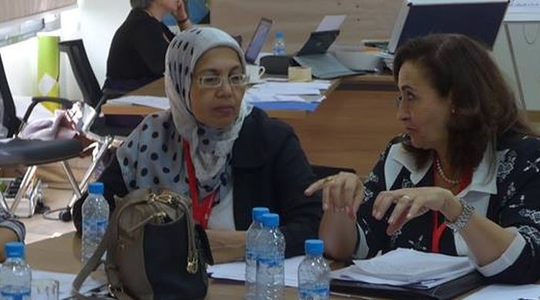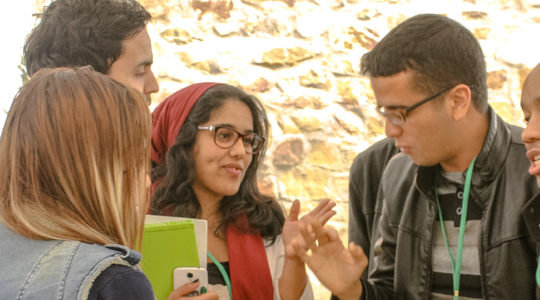The question of how to hold politicians accountable is crucial when it comes to establishing democratic culture. In many transition countries, but not only there, the political practice doesn’t match written law. Power sharing, rule of law and transparent decision making processes exist on paper, but the citizens’ lack of awareness and knowledge about their rights, nepotism, the absence of effective prosecution and a weak civil society prevent them from coming into effect. Improving accountability will not only reduce corruption, make administration more effective, and increase the efficiency of public spending, but will also increase the trust in politics and in the long run lead to more democratic and participatory decision making processes. The simulation game addresses the issue of accountability on a local level, in order to provide the target group with concrete entry points connected to their day-to-day life.
Scenario & Procedure
The simulation game takes place in a fictional community in a typical transition country. The town faces many challenges (water and electricity supply, no adequate provision of health services, poor waste management, bad infrastructure, low economic development etc.). The population is unsatisfied with the situation and has taken its demands to the streets. In light of these demonstrations local politicians have decided to act and come up with a development plan that ought to improve the situation. In the very center of this simulation game are the negotiations about a new Development Plan. Here the participants have to find adequate ideas and convince the Town Council Members.
Objectives
The main goal of this simulation game is to raise the participants’ awareness about their rights when it comes to local decision making processes. By helping to understand how local politics work and identify the duties of local politicians the simulation game helps to effectively control them and thus leads to more transparency. During the evaluation we also reflect on why democratic rules are often not put into practice and what could be individual entry points to change this. Doing so, we also strengthen the commitment to get involved into political processes, which is then again a key condition to sustainably implement a system of checks and balances.
Learning Goals
- Understanding local political processes
- Empower the population to address their needs and control politicians more effectively
- Developing innovative initiatives and alternative problem-solving approaches



